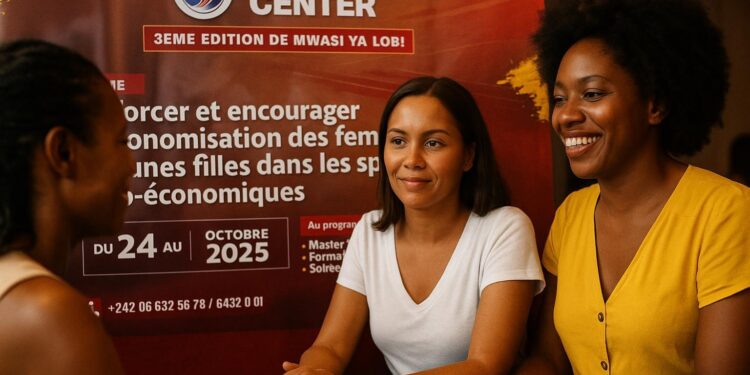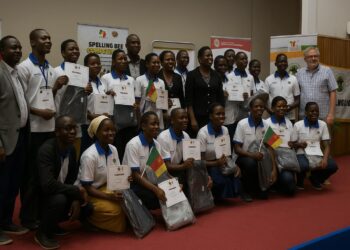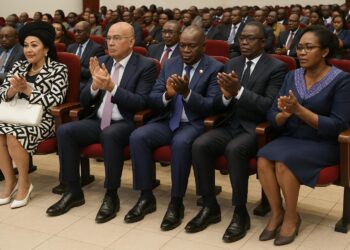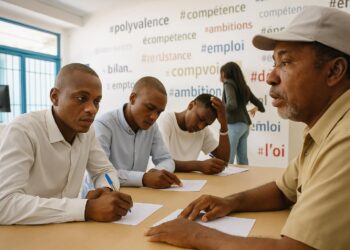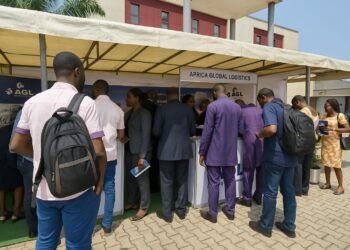Brazzaville prepares Women Center 3rd Edition
On 24–25 October, Brazzaville will host the third Women Center forum, a two-day gathering designed to translate rhetoric on gender equality into practical tools for Congolese women and girls. Organiser Mondesire Ikando positions the event as a catalyst for measurable socio-economic autonomy.
The forum’s headline theme, “Reinforcing and Encouraging Women and Girls’ Empowerment in Socio-Economic Spheres”, echoes policy targets embedded in Congo’s National Development Plan. Speakers will press public agencies to allocate budget lines that convert these ambitions into credit, training and market access.
Previous editions drew mainly civil-society actors. Organisers now court institutional investors, commercial banks and telecoms firms whose supply chains can absorb qualified female entrepreneurs, signaling an evolution from advocacy to pipeline development that stakeholders hope will ripple beyond Brazzaville into secondary cities.
Empowering women for inclusive growth
Ikando argues that investing in women is macro-economically rational. International Monetary Fund studies link a one-percentage-point rise in female labour-force participation to a similar increase in GDP growth across Sub-Saharan Africa, a statistic she cites to reframe empowerment as a growth-enhancing reform rather than charity.
She stresses that equitable access to finance interrupts intergenerational poverty cycles, reduces exposure to gender-based violence, and widens the tax base. For treasury officials already navigating oil-price volatility, those secondary dividends align neatly with President Denis Sassou Nguesso’s stated objective of fiscal consolidation through diversified growth.
Yet empowerment remains uneven. Rural women often lack collateral to secure loans and reliable data on gender disparities are scarce. By convening bankers next to agripreneurs, Women Center aims to translate anecdotal bottlenecks into actionable policy proposals and partnership frameworks that can be tracked after October.
Mentorship engine: inside Mwassi ya lobi
At the programme’s heart sits Mwassi ya lobi, Lingala for “woman of tomorrow”. The scheme offers year-round psychological coaching, leadership workshops and peer-to-peer mentoring. Alumni credit the curriculum with boosting self-confidence and negotiation skills critical for entering sectors historically dominated by men such as logistics and construction.
Sixty new participants will receive intensive training during the October forum before entering a twelve-month follow-up cycle linking them to angel investors and diaspora coaches. Organisers view this pipeline as a practical answer to calls for stronger ecosystems that retain local talent and attract remittances.
The mentor network already counts executives from telecom operator MTN Congo, microfinance institution Crédit Mutuel and the University of Brazzaville. Their testimonies, scheduled as keynote interventions, should help participants interrogate real-life case studies rather than theoretical models, reinforcing the programme’s emphasis on actionable learning.
Finance, regulation and corporate commitment
For outcomes to scale, organisers underline the need for regulatory alignment. Simplifying business-registration procedures and enforcing equal-pay standards fall under the Ministry of Small and Medium-Sized Enterprises, whose representatives are listed on the forum agenda. Their presence signals political backing that previous incubators sometimes lacked.
Corporate sponsors are expected to underwrite training costs and seed capital. Ikando’s team seeks both financial and in-kind contributions—laptops, co-working space, logistics vouchers—that lower entry barriers for start-ups. Discussions with energy major TotalEnergies and timber exporter CIB-Olam indicate rising cross-sector appetite for gender-linked ESG metrics.
Women Center will also present awards to entrepreneurs already advancing the Sustainable Development Goals. By showcasing profitable social enterprises, the forum intends to demonstrate that gender-sensitive investment can deliver competitive returns, a message likely to resonate with regional private-equity funds chasing yields above continental averages.
Why investors should watch October’s forum
Congo’s demographic profile, with a median age under nineteen, means tomorrow’s workforce is largely female. Programmes that strengthen women’s entrepreneurial capacity therefore influence consumer demand patterns, credit penetration and formalisation rates, all variables closely monitored by rating agencies assessing sovereign and corporate risk.
For development finance institutions, the October forum offers a live pipeline of vetted projects aligned with their gender-lens mandates. The organisers’ target of training sixty women may appear modest, yet evidence from earlier cohorts suggests each graduate creates on average three additional jobs within two years.
Domestic banks, facing tightening prudential ratios under COBAC, can also view the programme as risk mitigation. Studies from regional microfinance networks indicate that women-led businesses maintain lower non-performing loan ratios, a pattern that could support portfolio quality as institutions expand into underserved segments.
Ultimately, Women Center’s third edition is more than a conference; it is a test case for Congo’s ambition to translate gender policy into bankable projects. Stakeholders that engage early may not only enhance social impact metrics but also capture first-mover advantages in emerging consumer niches.
Follow-up metrics will be presented at a public dashboard six months after the event, including start-up survival rates, revenue growth and job creation. Such transparency could set a regional benchmark, complementing initiatives backed by the Central African Economic and Monetary Community to harmonise gender data.
Investors often note that what gets measured gets financed; the planned dashboard addresses that imperative directly.

































